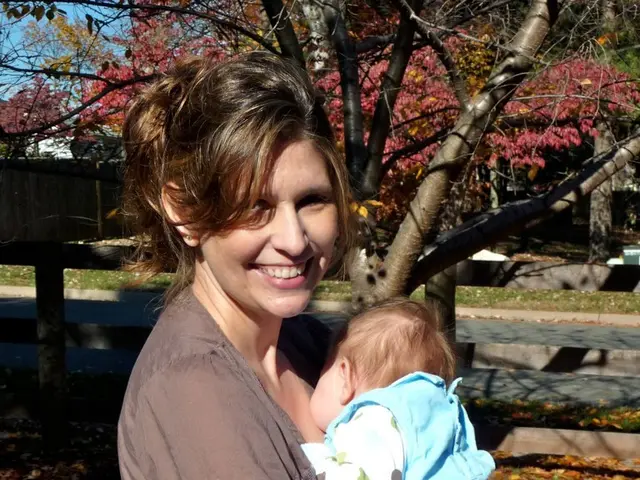Struggling to Tend to Sick Kiddos? Half of Danish Parents Have Been There
Approximately half of Danish parents resort to taking sick days to tend to their children's needs.
A new survey has highlighted a common predicament for many parents in Denmark: taking sick days from work to care for their ill children.
Dealing with Ill Kiddies - The Danish Dilemma
In a poll conducted by Voxmeter for BUPL, an astonishing 50% of parents admitted to having called in sick to look after their ailing offspring. The survey gathered responses from 1,000 parents with kids aged 0 to 6 years.
One out of every five parents admitted to dropping off their unwell children at daycare within the previous 12 months, typically due to the inability to arrange time off from work.
BUPL's chairperson, Elisa Rimpler, underscored the need for dialogue among labor market stakeholders regarding better support for parents to remain at home with their children until they recover. She added that a lack of suitable alternatives for sick children is detrimental to the labor market.
The Never-Ending Sickness Cycle
According to Rimpler, allowing ill children to attend kindergarten or creche sets off a chain of sickness, causing other children and daycare staff to become ill, resulting in an excessive number of absences for everyone involved.
She emphasized that no one enjoys dropping off their sick children, but the pressure parents face forces them into such situations.
In the past, the centre-left SF party suggested offering parents up to 5 days off work to care for an ill child. On the other hand, the Alternative party called the limited number of sick days for children absurd, stating that negotiations between politicians, trade unions, and employer associations do not adequately address this issue.
The Danish Model vs. its Neighbors
While there is no set number of days dedicated to caring for a sick child in Denmark, parents can employ various strategies like flexible parental leave, negotiating with their employers, using vacation days, or requesting unpaid leave. The Danish labor laws offer comprehensive parental leave benefits but do not list sick leave days for taking care of a child.
In contrast, parents in Sweden can take up to 60 days off per year to care for a sick child under the age of 12.
Employers' Responsive Approach
While acknowledging the challenges faced by families during the winter illness season, the Danish Employers' Association (DA) stated that most parents find solutions to enable their children to stay home until they recover. The organization's deputy CEO, Pernille Knudsen, recommended adhering to established rules, using annual leave or remote work as necessary, and discussing the situation with the employer if required.
BUPL's survey results suggest that most Danish parents handle the situation effectively, in contrast to previous assumptions that the situation has worsened over time.
In essence, a significant portion of Danish parents need to take time off from work when their children fall ill, necessitating a review of current policies and provisions for supporting parents during such situations.
- To combat the transmission of illnesses among children in childcare settings, BUPL's chairperson, Elisa Rimpler, suggests that all parties involved in labor market discussions address the need for better support for parents to work from home or take additional sick days.
- In a bid to improve workplace-wellness, many Danish parents employ various strategies such as flexible parental leave, negotiating with employers, using vacation days, or requesting unpaid leave when their children are ill.
- Health-and-wellness concerns extend to family health, as parents struggle with the decision of sending their sick children to daycare due to limited options for taking time off from work.
- Sweden offers more benefits to parents with ill children, allowing them up to 60 days off annually to care for their children, a stark contrast to the Danish policy which does not provide a set number of days dedicated to parental sick leave.








